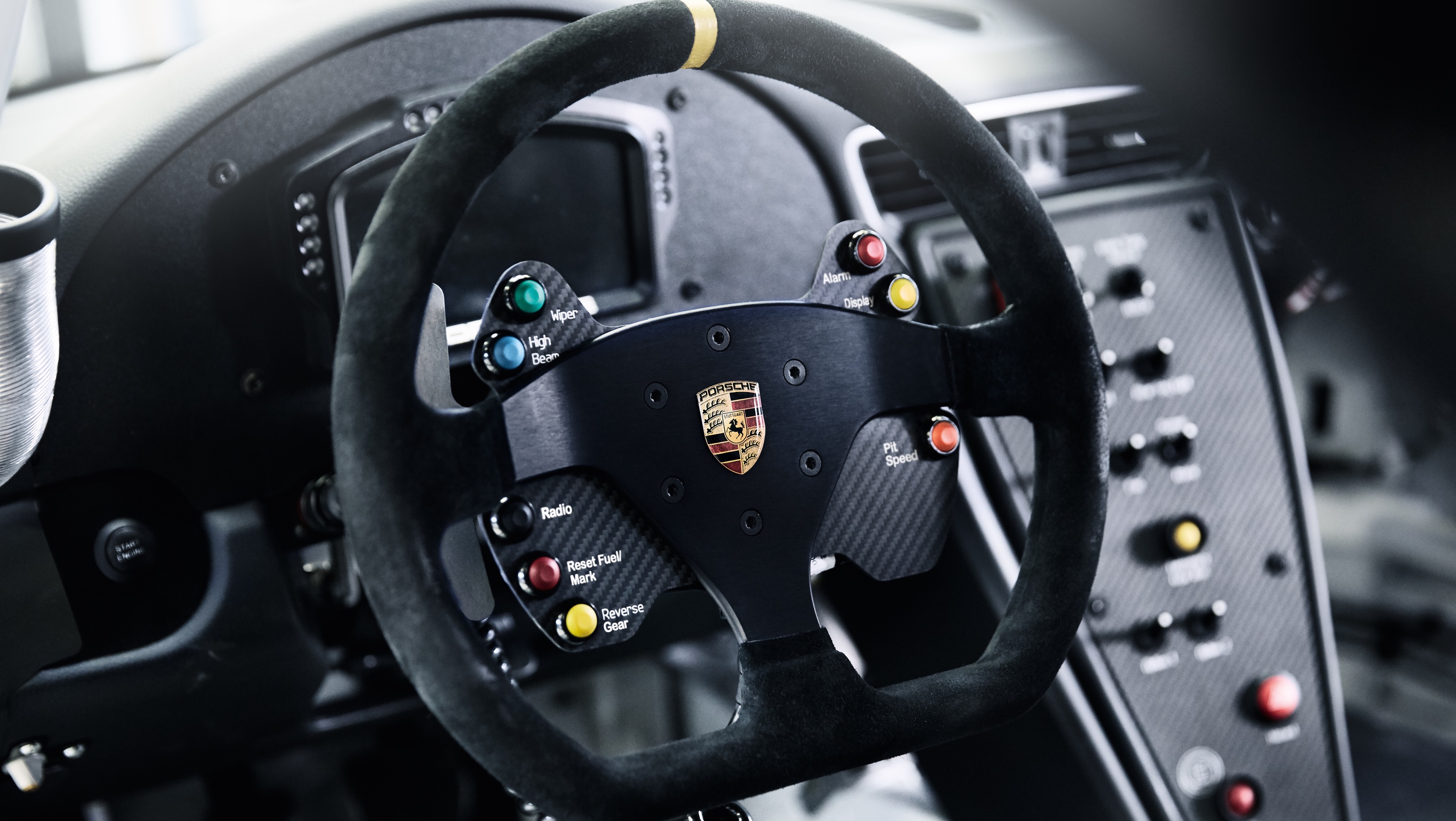The rear of the world’s most-produced GT racing car now houses a 4-litre, six-cylinder flat engine for even more drive. Thanks to thoroughbred motorsport technology, the compact engine with direct fuel injection delivers peak performance of 357 kW (485 hp).
A range of innovative details also improve efficiency in addition to engine perfor-mance, ensuring even better durability of the naturally aspirated engine in racing mode and reduced maintenance costs. A valve drive with rigidly mounted rocker arms and a central oil feed is being used for the very first time. What’s more, an inte-grated oil centrifuge is used to optimise oil defoaming in the engine. A crankshaft with significantly increased rigidity has also been installed.
Front apron and rear end improve the downforce of the new 911 GT3 Cup
A new front apron and a new rear end improve the downforce of the new 911 GT3 Cup and therefore enhance traction and performance. The prominent 184-centimetre wide rear wing has been retained from the predecessor model. The wheel dimensions are also unchanged: One-piece 18-inch racing rims with a central locking mechanism are used – with 270-millimetre Michelin racing slicks on the front axle, and a massive 310-millimetre tread on the rear axle. The intelligent aluminium-steel composite construction ensures maximum rigidity and a lightweight body. The new 911 GT3 Cup is ready to race weighing in at just 1200 kilograms.
The engineers have also once again focused specifically on driver safety during development. The driver is protected by a solid safety cage and an innovative, bucket-style racing seat that is moulded particularly heavily around the head and shoulder area. The enlarged rescue hatch in the roof, in line with the latest FIA standard, makes it easier to provide initial treatment and recovery following an accident.
Porsche manufactures the 911 GT3 Cup on the same production line as the 911 road car in its main plant in Stuttgart-Zuffenhausen. The basic race tuning is performed at the Weissach motorsport centre, where vehicles are also thoroughly tested by a professional race driver prior to delivery to the customer. Some 3031 units of the 911 GT3 Cup have been built in the 996, 997 and 991 model lines since 1998. This makes the brand cup racing car from Stuttgart the most-produced and most-sold GT racing car in the world.
The new 911 GT3 Cup will be used in the 2017 race season, initially exclusively in the Porsche Mobil 1 Supercup, which is held alongside the Formula 1 races, and in the Porsche Carrera Cup Deutschland, as well as in North America. As of 2018, the car will also be available for the other brand cups. In total, Porsche is organising 20 of these race series for customer teams around the world, with the 911 GT3 Cup be-ing used exclusively.
The 911 GT3 Cup can already be ordered now at Porsche Motorsport in Weissach.The price is 189,900 euros excluding country-specific VAT.

